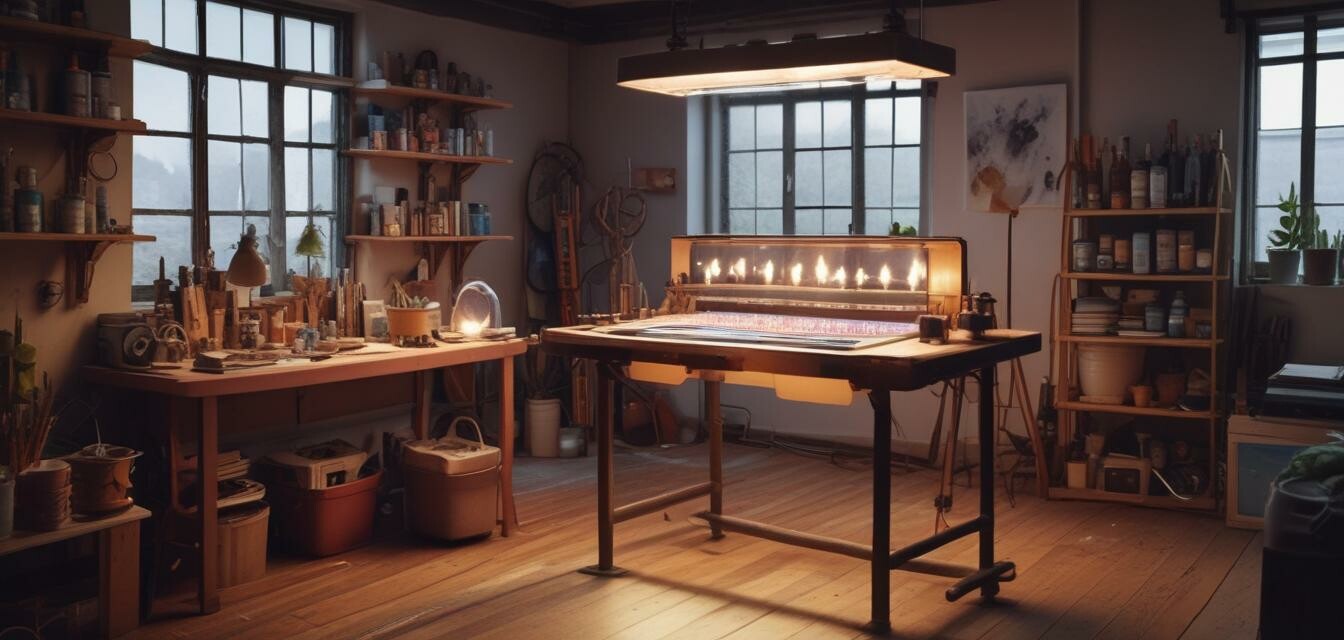
Best Kilns for Small Studio Setups
For artists working with glass in small studio setups, choosing the right kiln is crucial. Not only does it need to fit the available space, but it must also cater to various glass-making techniques. This article reviews the best kilns that are perfect for small studio setups, focusing on their size, capacity, and versatility.
Key Takeaways
- The ideal kiln for small spaces strikes a balance between capacity and compactness.
- Look for versatile kilns that can accommodate fusing, slumping, and casting techniques.
- Consider the available power supply and kiln features, such as digital controls and programmable settings.
Why choosing the right kiln matters
The right kiln can significantly affect your glass-making experience, especially in a small studio setup. A kiln should not only fit well in your space but also enable you to experiment with various techniques without limitation. Here are some factors to consider:
- Size: The kiln should fit comfortably in your workspace.
- Capacity: Ensure it meets your project requirements, whether small or larger glass pieces.
- Versatility: Consider whether it's suitable for multiple techniques like fusing, slumping, and casting.
Top recommendations for kilns in small setups
Below, we highlight some popular kilns suitable for small studios and the unique features that set them apart.
| Kiln Model | Size (inches) | Max Temp (°F) | Usage |
|---|---|---|---|
| Compact Studio 1 | 14 x 14 | 1700 | Fusing & Slumping |
| Artisan Mini | 10 x 10 | 1650 | Fusing & Casting |
| Vertex Pro | 12 x 12 | 1800 | Fusing, Slumping & Casting |
Comparing kiln features
When choosing a kiln, consider the following features in-depth:
| Feature | Compact Studio 1 | Artisan Mini | Vertex Pro |
|---|---|---|---|
| Digital Controls | Yes | No | Yes |
| Programmable Settings | Yes | No | Yes |
| Portability | No | Yes | No |
Tips for setting up your kiln
Beginner's section: Tips for small studio setup
- Choose a kiln that fits comfortably in the available space.
- Place the kiln on a fireproof surface away from flammable materials.
- Ensure proper ventilation to maintain a safe workspace.
- Familiarize yourself with the kiln's features and settings for optimal use.
Common FAQs
1. Can I use any kiln for glass work?
No, not all kilns are suitable for glass work. Make sure to choose one specifically designed for glass fusing and slumping.
2. What should I look for in a beginner kiln?
Look for something compact, easy to operate, and with a maximum temperature that suits the glass fusing work you intend to do.
3. Are digital kilns better than manual ones?
Digital kilns often provide more control and easier programming, making them generally more recommended for beginners.
Pros
- Compact sizes save space.
- Versatile for multiple glass-making techniques.
- Digital controls offer precise temperature management.
Cons
- Some small kilns may have limited capacity.
- Portability may be reduced in larger, heavier models.
Final thoughts on choosing a kiln
Ultimately, the right kiln depends on your unique glass-making needs and space constraints. Evaluate the options listed above, and consider your future projects to ensure you select the best fit for your small studio. For exploring more great resources and supplies, check out our glass kilns category and discover daily deals that can transform your craft!
Explore more about kilns
If you want to dive deeper into techniques and supplies, visit our section on glass molds or glass sheets and supplies to enhance your glass-making skill set!

